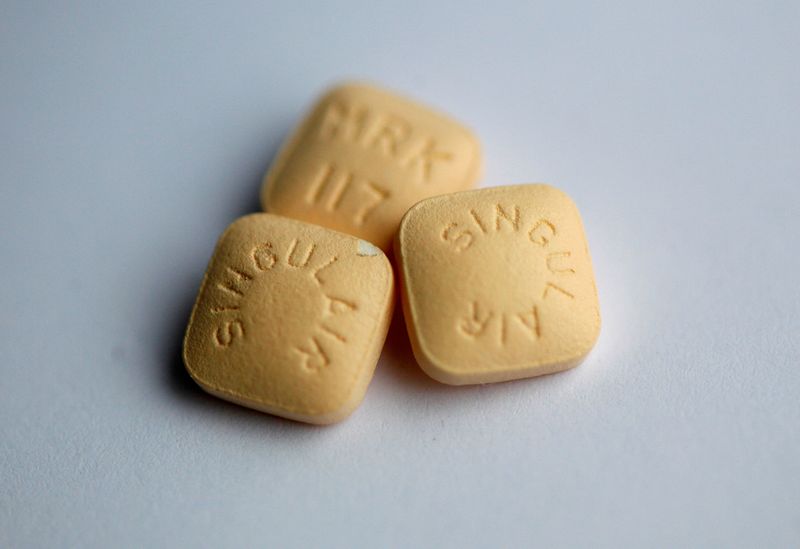By Robin Respaut and Dan Levine
(Reuters) - The attorney general for one of the most populous U.S. states this week urged federal drug regulators to address safety risks associated with the widely used asthma and allergy medicine Singulair, saying current warnings on the drug's packaging are insufficient, particularly for children.
In a letter dated on Wednesday, the New York state attorney general's office urged the U.S. Food and Drug Administration to further investigate and warn consumers and healthcare providers about harmful neuropsychiatric side effects of Singulair, also known by its generic name montelukast.
The office told the FDA that the effects of Singulair on children are a "particularly urgent concern in light of the national youth mental health crisis plaguing our state."
FDA spokesperson Chanapa Tantibanchachai on Friday said the agency would respond directly to Attorney General Letitia James. A spokesperson for Merck & Co spinoff Organon, which currently markets Singulair, did not immediately respond to a request for comment.
The letter cited a report from Reuters last year that found the FDA had received thousands of reports of patients, including many children, experiencing depression, suicidal thoughts and behaviors, or other psychiatric problems after taking Singulair or generic montelukast, since the drug was launched by Merck over 25 years ago.
The Reuters report also detailed lawsuits alleging Merck knew from its early research that the drug could impact the brain and that it minimized the potential for psychiatric problems in statements to regulators.
In 2020, the FDA added its most serious warning, known as a "black box," to the drug's label, describing serious neuropsychiatric events reported by patients taking the medicine.
The AG's office asserted that four years after the warning was added to the drug's label, the prevalence of adverse mental health events, including suicide, continued to be widely reported disproportionately for pediatric patients, and that many healthcare professionals and patients are still unaware of the potential serious side effects.

The AG urged the FDA to investigate whether the risk of Singulair's adverse side effects outweigh its benefits for pediatric patients, and to notify healthcare providers of the drug's safety risks to minors. The AG's office also suggested the FDA encourage providers to consider alternative FDA-approved medications for asthma and allergies in children and adolescents.
Singulair, one of the best-selling drugs in U.S. history, provided Merck with about $50 billion in revenue, company disclosures show. Millions of prescriptions of the drug have also been written for generic versions of Singulair.